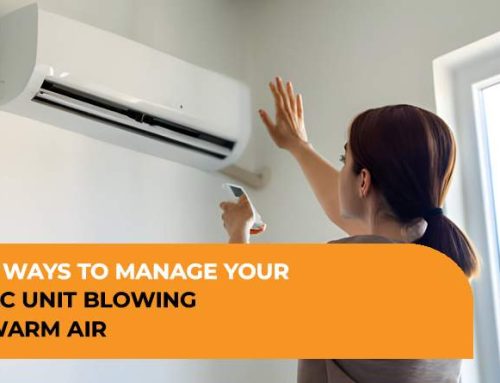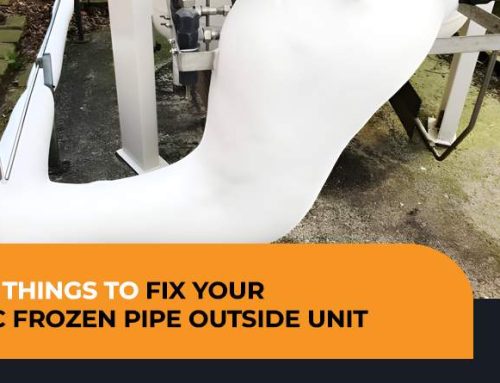Is your home feeling more like an oven than a haven? It might occur because your AC compressor is not turning on. If the compressor doesn’t start up, you won’t be able to enjoy quality air!
We will walk you through the eight most common reasons for this issue and provide simple solutions to get your air conditioning system back up and running.
You can easily combat the heat with our concise explanations and solutions for everything from dirty coils to thermostat problems.
Why Isn’t Your AC Compressor Turning On? 8 Reasons
Finding out why your air conditioning compressor isn’t working is the first step towards getting that fantastic comfort you want again.
Let’s investigate the potential causes of this annoying problem:
1- Thermostat Issues
Your air conditioner’s thermostat regulates its on and off times. It might not signal the compressor to start if it’s improperly configured or not working correctly.
Verify that the thermostat is correctly set to a relaxed setting. Additionally, make sure that any batteries are functioning properly.
2- Electrical Problems
The operation of AC compressors requires electricity. The compressor won’t start if there is an issue with the electrical supply, such as a blown fuse, tripped circuit breaker, or damaged cabling.
Check the electrical panel to see if breakers have tripped or blown fuses. Furthermore, look for any obvious signs of damage or loose connections in the cabling that connects to the compressor.
3- Faulty Capacitor
The compressor motor starts more easily thanks to the capacitor. The compressor may not start at all or have problems if worn out or malfunctioning.
Over time, the degradation of capacitors can be brought on by electrical issues. Visual inspection may reveal a bulging or leaky capacitor, necessitating replacement.
4- Contactor Problems
An electrical switch called a contactor controls the compressor’s power supply. It may prevent the compressor from starting if it is broken, worn out, or malfunctioning.
Inspect the contractor for signs of wear or degeneration and replace it as necessary.
5- Low Refrigerant Levels
Refrigerant is necessary for the air conditioning system to cool the air. If leaks or improper installation causes the refrigerant levels to drop too low, the compressor may not run to prevent harm.
A certified HVAC technician repaired any refrigerant leaks and refilled the system with the proper refrigerant volume.
6- Faulty Compressor Motor
The compressor cannot be started or operated if the compressor motor is broken or malfunctioning. Mechanical, electrical, or wear-and-tear issues could bring it on over time.
In these circumstances, it can be essential to repair the compressor motor, which frequently calls for the knowledge of a certified specialist.
7- Blocked or Dirty Condenser Coils
Because the condenser coils remove heat from the refrigerant, the AC system can cool down properly. If dirt, debris, or vegetation gets in the way of the coils and restricts airflow, the compressor overheats and shuts off.
This issue can be prevented by keeping the condenser coils clean and well-maintained.
8- Frozen Evaporator Coil
If the evaporator coil freezes due to low refrigerant levels or restricted airflow, the compressor may switch off to prevent harm.
Thawing the coil and addressing the underlying cause of the freezing, which may be dirty air filters or refrigerant leakage, will remedy this issue.
7 Tips to Keep Your AC Compressor Running and Active
Here are some tips to keep your AC compressor running smoothly:
1- Regular Maintenance
Your AC system needs routine maintenance to operate at peak efficiency, much like a car. Make an appointment with a qualified HVAC expert for yearly or biannual maintenance inspections.
During these trips, they will check refrigerant levels, clean and examine components, and ensure everything is in working order.
2- Change Air Filters
Dirty air filters can restrict airflow, causing your AC compressor to work harder than necessary. Make it a habit to regularly check and replace your air filters, ideally every 1 to 3 months, depending on usage and filter type.
This simple task can improve energy efficiency and prolong the life of your system.
3- Keep the Outdoor Unit Clear
The compressor and condenser coils are housed in the outdoor unit, so keeping dirt, leaves, and other blockages away is critical.
Remove leaves, sticks, and other debris that could obstruct airflow from any bush or plant surrounding the unit. It makes it possible for your compressor to run smoothly without overheating.
4- Maintain Proper Insulation
A well-insulated home keeps cooler air, easing the strain on the compressor and other air conditioning system parts.
Make sure the attic and walls of your house are sufficiently insulated. Effective insulation reduces the need for continuous cooling, which keeps your home comfortable and minimizes energy costs.
5- Use Programmable Thermostat
With the help of a programmable thermostat, you may adjust temperatures according to your schedule, saving energy and lessening the load on your air conditioner.
When you’re not home or sleepy, set the temperature higher and lower when you are home and in motion. It minimizes needless cooling while assisting in comfort maintenance.
6- Avoid Overworking the System
Excessive heat or prolonged air conditioning system use can stress the compressor and other parts.
To lessen the strain on your air conditioner on hot days, think about turning on fans or drawing curtains. Furthermore, lowering the thermostat too far can result in high energy usage and compressor degradation.
7- Address Refrigerant Leaks Promptly
Your air conditioner’s compressor may malfunction and sustain damage if there is low refrigerant.
A refrigerant leak may be indicated if you observe a decline in cooling effectiveness or hear hissing noises from the system. Contact a qualified HVAC specialist to check for leaks and fix them.
These pointers help you maintain the longevity of your air conditioning compressor, increase its efficiency, and experience year-round comfort.
Invest in Regular Inspections
While homeowners can perform some maintenance tasks, investing in regular inspections by a qualified HVAC technician is essential. With their knowledge and equipment, they can spot possible problems early on, saving expensive repairs and guaranteeing your AC compressor functions well for many years.
Schedule inspections at least once a year or as your HVAC professional recommends. Contact The Bee Heat and AC for the best AC maintenance services.
People Also Ask!
How often should I change my air filters to keep my AC compressor running smoothly?
To ensure enough airflow and prevent compressor strain, you should replace your air filters every one to three months, depending on usage and kind of filter.
What should I do if my AC system isn’t cooling as effectively as before?
Look for refrigerant leaks, clogged outside units, and unclean air filters. If none of these work, arrange for a professional HVAC examination so that any issues with the compressor or other parts can be found and fixed.
Is it necessary to schedule regular maintenance for my AC system even if it works fine?
Regular maintenance ensures that your AC compressor runs well and has a longer lifespan by identifying possible problems early on. Make an appointment with a qualified HVAC expert for yearly or biannual maintenance inspections.


